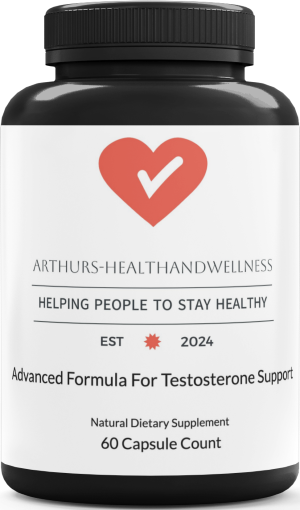
Introduction to Testosterone and Vitality
Testosterone is a crucial hormone predominantly produced in the male testes, though it is also present in smaller amounts in females, with production occurring in the ovaries and adrenal glands. This hormone is pivotal in various bodily functions, particularly in regulating male health, vitality, and overall well-being. Testosterone influences a myriad of physical and psychological factors; its impact not only encompasses sexual health but extends to energy levels, muscle mass, fat distribution, and even mood regulation.
The significance of testosterone plays a crucial role in vitality. It directly maintains energy and stamina levels, essential for an active lifestyle. Low levels of testosterone can lead to symptoms such as fatigue, decreased strength, and a general sense of malaise. Furthermore, the psychological aspects of vitality are deeply affected by testosterone levels; men experiencing low testosterone may find themselves grappling with issues like depression, irritability, and reduced motivation.
Physical performance is also intricately tied to testosterone. This hormone is essential for developing lean muscle mass and strength, vital for any man aspiring to maintain fitness and vitality. Moreover, athletic performance can also suffer; lower testosterone levels may lead to decreased endurance and a longer recovery following strenuous activities.
Understanding testosterone and its effects is vital for recognizing how level fluctuations influence various life aspects. Low testosterone has significant consequences, making it crucial to maintain optimal levels for physical and mental health. This exploration highlights testosterone’s role in sustaining vitality and enhancing overall quality of life.
Understanding Low Testosterone: What It Is and How It Affects You
Low testosterone, known clinically as hypogonadism, is a condition marked by reduced testosterone levels in the body.. This hormone, predominantly produced in the testes, plays a pivotal role in various bodily functions, including developing male physical characteristics, regulating libido, and maintaining bone density and muscle strength. A testosterone deficiency is not only confined to older individuals; it can occur across various age groups, impacting men as early as their 30s.
The symptoms of low testosterone can be quite varied and may present differently among individuals. Common physical symptoms include reduced muscle mass, increased body fat, diminished bone density, and lower energy levels. On the mental health front, men suffering from low testosterone may experience mood swings, depression, or difficulty concentrating. These symptoms can significantly disrupt daily life and overall well-being, often leading to declining quality of life.
Several underlying causes contribute to low testosterone levels. Conditions such as obesity, diabetes, and certain genetic disorders can impair the body’s ability to produce adequate amounts of this crucial hormone. Lifestyle factors, including chronic stress, poor diet, and lack of exercise, can also contribute to hormonal imbalances. Furthermore, medical interventions, like chemotherapy or radiation treatment for cancer, may adversely affect testosterone production.
Age is another critical factor, as testosterone levels tend to decline naturally with advancing years. This gradual decrease can result in symptoms that many may erroneously attribute solely to aging, highlighting the need for awareness and early diagnosis. Recognizing the signs of low testosterone is vital to encouraging timely medical intervention and facilitating a proactive approach to overall health management.
Signs and Symptoms of Low Testosterone
Understanding the signs and symptoms of low testosterone is essential for identifying potential hormonal imbalances that could affect various aspects of life. Low testosterone, also known as hypogonadism, can manifest in several ways, impacting sexual health, physical fitness, mood, and cognitive function. Recognizing these indicators is crucial for seeking appropriate treatment.
One of the most recognizable symptoms of low testosterone pertains to sexual health. Men may experience a reduced libido, leading to diminished interest in sexual activity. This sexual dysfunction can also include difficulties in achieving or maintaining erections, which may contribute to relationship problems and decreased self-esteem. Furthermore, infertility may arise, as testosterone plays a significant role in sperm production.
Low testosterone can severely affect physical fitness and sexual health. Individuals may notice a decline in muscle mass and strength, along with increased body fat. This change often correlates with fatigue and reduced energy levels, making it challenging to engage in regular physical activity. Additionally, persistent fatigue can hinder one’s motivation to maintain a healthy lifestyle.
Mood disorders are another vital area impacted by low testosterone levels. Many individuals report increased feelings of sadness, depression, or irritability. These emotional fluctuations can stem from hormonal changes, leading to a decreased quality of life. Low testosterone is associated with cognitive difficulties, such as reduced concentration and memory issues, affecting daily functioning.
Overall, the signs and symptoms of low testosterone are diverse, encompassing sexual, physical, emotional, and cognitive health. Awareness of these indicators enables individuals to address the issue proactively. If any of these symptoms resonate, it is advisable to consult with a healthcare professional to explore potential testing and treatment options.
Myths and Misconceptions About Low Testosterone
Low testosterone has become a widely discussed topic, yet numerous myths and misconceptions persist surrounding this vital hormone and its impact on health. One prevalent myth is that testosterone therapy is only appropriate for older men. In reality, low testosterone can affect individuals at various life stages, including younger men. The notion that only aging leads to decreased testosterone levels is an oversimplification of a complex issue. Factors such as obesity, health conditions, and certain medications can contribute to low testosterone, irrespective of age.
Another common misconception is the belief that testosterone therapy is a universal cure for various ailments. While hormone replacement therapy can benefit men experiencing genuine testosterone deficiencies, it is not a one-size-fits-all solution. Many individuals may have low testosterone levels without experiencing noticeable symptoms, and administering testosterone indiscriminately can lead to potential side effects, increasing the risk of cardiovascular issues, mood swings, and even infertility in some cases.
Furthermore, society often perpetuates the idea that high testosterone levels correlate directly with masculinity and strength. This portrayal neglects the nuanced reality that emotional expression and vulnerability are not weaknesses but essential aspects of human experience, irrespective of testosterone levels. Low testosterone does not inherently define an individual’s character or capability; it may reflect biological changes requiring medical attention and support.
Finally, addressing mental health is essential when discussing low testosterone. Some think low testosterone only causes aggression or irritability, but many men also face depression, fatigue, and anxiety. These emotional challenges are often overlooked, leading men to struggle silently with the broader effects of low testosterone on mental well-being.
Testing for Low Testosterone: An Essential Step
Diagnosing low testosterone levels is an essential step toward understanding and addressing male health concerns. The process typically begins with a comprehensive assessment by a healthcare professional specializing in hormonal health. Initially, patients must discuss their symptoms, including fatigue, reduced libido, or mood changes. These conversations form the foundation for further evaluations.
After establishing a thorough medical history, the physician may recommend blood tests to measure testosterone levels. The primary method for measuring testosterone levels is a serum test that analyzes blood samples for total testosterone. Since testosterone levels fluctuate throughout the day, healthcare providers typically conduct testing in the morning when levels are highest. In some cases, doctors may also order additional tests, such as follicle-stimulating hormone (FSH) or luteinizing hormone (LH), to assess pituitary gland function and identify potential causes of low testosterone.
Interpreting the test results can be complex due to the existence of various factors that may influence testosterone levels, such as age, obesity, and comorbid conditions. Normal testosterone levels typically range from 300 to 1,000 nanograms per deciliter (ng/dL), but individual results must be considered in light of the patient’s overall health and symptoms. Therefore, having a detailed discussion with a healthcare provider about what these results mean is crucial. Healthcare professionals can provide a contextual rather than isolated interpretation of hormone levels, which aids in understanding what steps, if any, should be taken next. Ultimately, timely diagnosis and intervention are critical in managing low testosterone effectively, enhancing overall vitality and well-being.
Natural Remedies and Lifestyle Changes to Boost Testosterone Levels
Boosting testosterone levels naturally requires a comprehensive approach that includes diet, exercise, stress management, and sleep hygiene. These strategies are essential for enhancing vitality and overall well-being.
Dietary modifications play a crucial role in managing testosterone levels. Consuming foods rich in zinc, such as oysters, red meat, and beans, can have a positive impact, as zinc is a vital mineral for testosterone production. Additionally, incorporating healthy fats in avocados, nuts, and olive oil is beneficial, as these fats support hormonal balance. It is also advisable to limit sugar intake, as excessive sugar can disrupt hormonal functions and lead to a decrease in testosterone.
Regular exercise is another powerful tool for increasing testosterone levels. Strength and high-intensity interval training (HIIT) have significantly improved testosterone production. These types of workouts not only promote muscle mass but also stimulate the endocrine system, contributing to higher testosterone levels. Balancing physical activity with adequate recovery is equally essential; overtraining can have the opposite effect on hormone levels.
Managing Stress Effectively is Also Important
Managing stress effectively is also imperative for maintaining optimal testosterone levels. Chronic stress elevates cortisol, a hormone that negatively affects testosterone production. Techniques such as mindfulness, meditation, and deep-breathing exercises can help reduce stress levels. Incorporating leisure activities that bring joy and relaxation can further support mental health and hormonal balance.
Lastly, the importance of prioritizing quality sleep cannot be overstated. Aim for 7 to 9 hours of restful sleep each night, as research links poor sleep to lower testosterone levels. Establishing a bedtime routine that promotes relaxation, such as limiting screen time and creating a calming environment, can significantly enhance sleep quality.
In summary, lifestyle changes encompassing a balanced diet, regular exercise, stress management, and proper sleep are vital for naturally boosting testosterone levels. Applying these holistic health strategies can lead to improved vitality and overall well-being.
Medical Treatments for Low Testosterone
When addressing low testosterone levels, several medical treatment options are available that can help restore hormonal balance and improve overall vitality. One of the most common approaches is hormone replacement therapy (HRT), which involves administering testosterone through various methods such as injections, patches, gels, or pellets. Each method has advantages and considerations, allowing personalized treatment based on individual preferences and health status.
Injections are typically administered intramuscularly and often require assistance from a healthcare provider. This method can provide a rapid increase in testosterone levels but usually necessitates periodic visits for reapplication. Alternatively, individuals can self-administer topical gels and patches, which are more convenient. However, they may require daily application to maintain stable testosterone levels.
Pellet therapy, which involves implanting small testosterone pellets under the skin, can also offer a sustained release of hormones, often lasting several months before requiring replacement. While these methods can effectively elevate testosterone levels, they also come with potential risks and side effects, including acne, sleep apnea, and increased red blood cell count, which necessitate regular monitoring by healthcare providers.
It is also essential to consider the impact of testosterone replacement on pre-existing conditions. For instance, men with a history of prostate cancer or specific cardiovascular issues may face increased risks when undergoing treatment. Therefore, a thorough evaluation by a healthcare professional is crucial to determine the appropriateness of any treatment option.
Overall, medical treatments for low testosterone vary and should be tailored to each individual’s unique circumstances.. By weighing the benefits and potential risks, patients can make informed decisions about starting testosterone therapy, ultimately supporting their quest for improved vitality and well-being.
The Role of Diet and Nutrition in Hormonal Health
Diet and nutrition are pivotal in maintaining hormonal balance, particularly testosterone levels. The foods consumed can significantly influence the production and regulation of this crucial hormone, essential for overall vitality and well-being. It’s important to recognize which nutrients support testosterone production and incorporate them into daily meals.
 Don’t keep this gem to yourself! Imagine the ripple effect when your post shines brightly, reaching and inspiring the audience it was meant for. By sharing it, you’re not just spreading a message; you’re creating a wave of positivity and connection that could change someone’s day—or even their life. Let’s amplify its impact together—will you share it and let it sparkle in the spotlight?
Don’t keep this gem to yourself! Imagine the ripple effect when your post shines brightly, reaching and inspiring the audience it was meant for. By sharing it, you’re not just spreading a message; you’re creating a wave of positivity and connection that could change someone’s day—or even their life. Let’s amplify its impact together—will you share it and let it sparkle in the spotlight?Healthy fats boost testosterone levels, particularly those from avocados, nuts, and olive oil. These fats are critical for hormone synthesis and should be included in a balanced diet. Additionally, omega-3 fatty acids from fatty fish, such as salmon and walnuts, promote cardiovascular health and help regulate hormone levels.
Protein intake should also be emphasized, as sufficient protein is crucial for muscle building, which can enhance testosterone levels. Foods such as lean meats, eggs, and legumes provide quality protein sources for hormonal health. Moreover, it’s essential to balance protein consumption with carbohydrates, particularly whole grains, fruits, and vegetables, which provide the vital vitamins and minerals that support testosterone production, such as zinc and vitamin D.
Furthermore, certain dietary habits can significantly impact testosterone levels. For instance, maintaining a healthy weight can improve hormonal balance because excess body fat, especially around the abdomen, is linked to lower testosterone levels. Hydration also plays a key role in overall health—adequate water intake supports metabolic processes that influence hormone levels.
A nutrient-dense diet rich in healthy fats, high-quality proteins, balanced carbohydrates, and healthy lifestyle choices can significantly enhance testosterone levels and contribute to overall hormonal health. Conscious dietary choices can effectively support individuals’ vitality and well-being.
Conclusion: Taking Control of Your Vitality
In addressing the crucial topic of low testosterone levels, it is essential to recognize its impact on overall vitality and well-being. Throughout this discussion, we have examined the symptoms and risks associated with low testosterone and highlighted the importance of maintaining balanced hormone levels. Awareness plays a significant role. Monitoring testosterone levels should be viewed as an ongoing endeavor. Individuals experiencing symptoms such as fatigue, decreased libido, or mood changes should consult healthcare professionals for appropriate testing. Regular check-ups can facilitate early detection of hormonal imbalances, enabling timely intervention. Men mustn’t dismiss these signs, as low testosterone can contribute to various health issues beyond mere fatigue or reduced interest in daily activities.
Furthermore, lifestyle factors significantly influence testosterone levels. Engaging in regular physical activity, maintaining a balanced diet, managing stress, and ensuring adequate sleep can contribute to optimal hormonal balance. Whether through diet modifications, exercise regimens, or natural supplements, individuals have the power to enhance their vitality. However, in cases where lifestyle changes are insufficient, seeking medical support may be necessary. Healthcare professionals can offer guidance on effective treatments and strategies tailored to individual needs.
By taking charge of their health, individuals can effectively combat low testosterone levels and invest in their vitality. The journey towards a healthier life involves making informed decisions about lifestyle changes, pursuing necessary medical consultations, and advocating for personal well-being. Embracing these proactive measures can lead to a more fulfilled life with enhanced energy and improved mental clarity.





